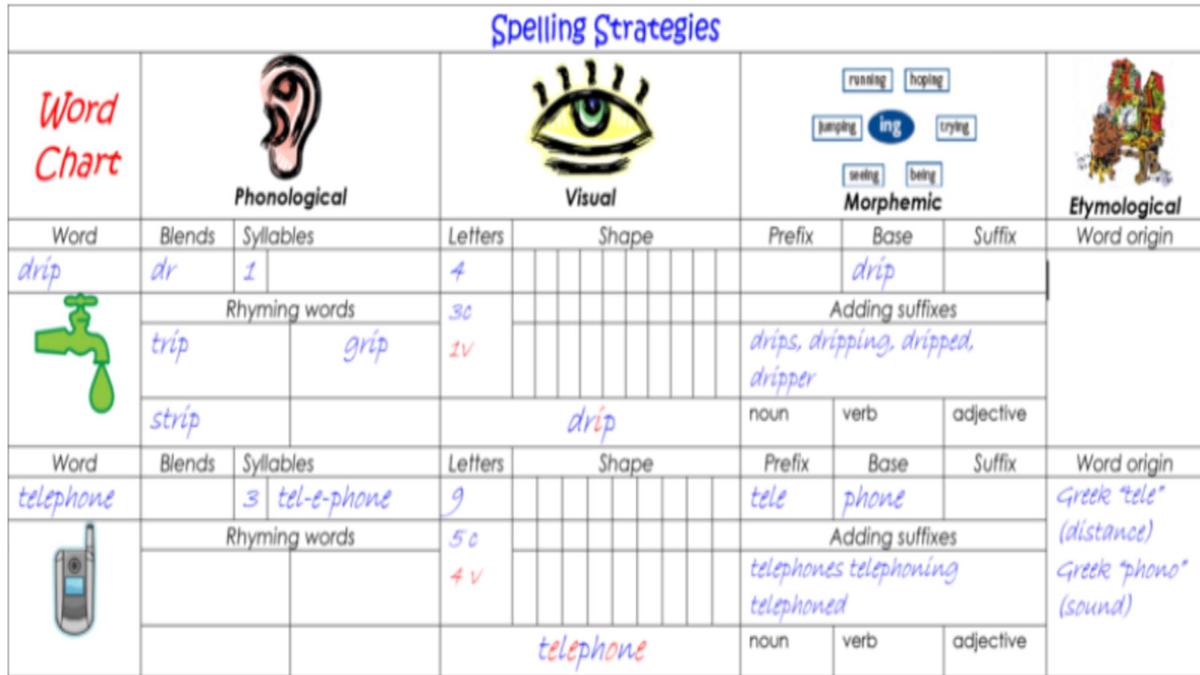Literacy

Spelling
Have you ever wondered how English can have so many different spellings of the same sounds?
English spelling is notoriously difficult to master for native speakers and language learners alike. Because English developed from several different language families, and because it so easily absorbs new words from other languages even today, the English language has many different ways to spell the same sound and many different ways to pronounce the same spelling. But learning to spell is much more than just remembering the order of the letters. There are four main ways we teach students to spell using Phonological, Visual, Morphological and Etymological strategies.
Phonology
Phonology is the study of the patterns of sounds in a language and cross languages. Put more formally, phonology is the study of the categorical organisation of speech sounds in languages; how speech sounds are organised in the mind and used to convey meaning.
Visual
Does the word look right? Good spellers often try spelling a word several ways to see which way looks correct. Reading and being read to helps children build their visual memory of words related to that particular concept. Visual memory is important when it comes to correctly using homophones, too, like pray and prey or tale and tail. Extensive reading and word games will also help your student build visual memory.
Morphology
A morpheme is the smallest unit of meaning within a language. Morphemes can be a whole word, part of a word or even a single letter. The word reporter has three morphemes: re + port + er. These three morphemes each influence the overall meaning of the word. The prefix re means back, the Latin root port means carry and the suffix er means one who. If we combine the meaning of each morpheme, we can derive that the word reporter means one who carries back information or news.
Etymology
Etymology is the study of the origin of words and how the meaning of words has changed over the course of history. Let’s get meta and take the word “etymology” as an example. “Etymology” derives from the Greek word etumos, meaning “true.” Etumologia was the study of words’ “true meanings.”
Sarah Watkins
Learning Specialist - Literacy

